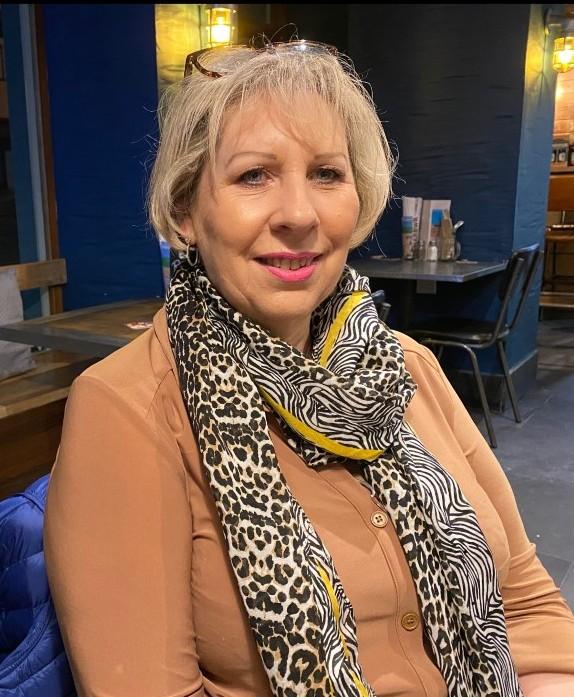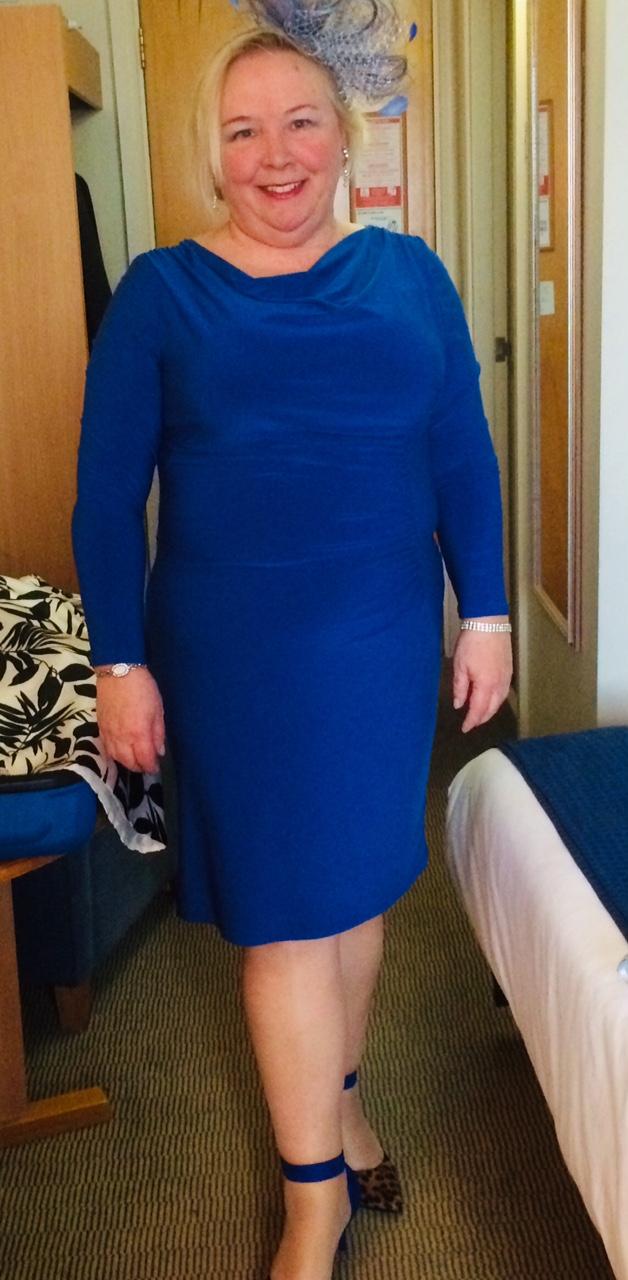‘Too young to retire, too old to work’: How the pandemic has ravaged women hit by state pension age rise
‘If you had a decent pension, like Germany or France, then you could have a holiday. Or do the things you dreamed of doing in your retirement, that you didn’t have time to do when you were younger,’ says Pauline Hinder

Your support helps us to tell the story
From reproductive rights to climate change to Big Tech, The Independent is on the ground when the story is developing. Whether it's investigating the financials of Elon Musk's pro-Trump PAC or producing our latest documentary, 'The A Word', which shines a light on the American women fighting for reproductive rights, we know how important it is to parse out the facts from the messaging.
At such a critical moment in US history, we need reporters on the ground. Your donation allows us to keep sending journalists to speak to both sides of the story.
The Independent is trusted by Americans across the entire political spectrum. And unlike many other quality news outlets, we choose not to lock Americans out of our reporting and analysis with paywalls. We believe quality journalism should be available to everyone, paid for by those who can afford it.
Your support makes all the difference.The lives of women hit by the state pension age rise have been turned upside down by the coronavirus pandemic, pushing some into destitution after losing their jobs in the Covid-19 crisis, while others have been forced to carry on working – despite their age putting them at risk of serious complications from the life-threatening disease.
Almost 4 million women were affected by the government raising the state pension age from 60 to 66 for women born after March 1950. The age rise was accelerated in 2010 and saw women reach equality with men, at 65, in 2018.
BackTo60, a campaign group calling for women to be reimbursed for pension payments they have missed due to the changes, lost its landmark High Court battle against the government – but appealed the ruling last month. Campaigners could now potentially have to wait until the autumn for a decision to be announced.
The Independent spoke to women from across the UK affected by the controversial changes, all of whom feel they are too old to be working despite the government telling them they are too young to retire.
Terrified of returning to work at the care home
Janet Williams, from South Wales, found about the rise after her neighbour’s daughter told her over the garden fence. It left her feeling shocked.
The 62-year-old, who has worked with adults with learning disabilities for 20 years, said her anxiety has spiralled out of control during the coronavirus crisis as she is caring for her husband and her mother – who are both at severe risk from Covid-19.

She said: “My husband is 69. He’s type two diabetic and he injects insulin. My mother is 93 in two weeks. She has age-related dementia. I am keeping two houses going. Hers and ours. Both mum and my husband are vulnerable. I’ve got arthritis and I suffer from vertigo.
“The week leading up to lockdown, I had severe anxiety about contracting coronavirus. Someone at work had suspected coronavirus. I had a meltdown. I went off sick with anxiety and stress. I am currently on sick pay from my company but that drops down to half pay after six months and it will go down soon. They are trying to make me go to a care home rather than working with people with learning disabilities.
“I don’t want to do it. I’m worried about my mother and worried about my husband. They’ve had coronavirus at the care homes near me. Care homes are a very dangerous place at the moment. I started work at 16 and I have worked now for 46 years. I’ve never had a break from work. I always thought I’d retire at 60. I’m so stressed. I’m sleeping about four hours a night if I’m lucky, and when I do go to sleep I’m having nightmares about being made to go to work. It makes me feel like crying.”
Struggling after losing cleaning job in pandemic
Miriam Jones*, who was impacted by the state pension age rise, said she had been forced into the rental market since losing her home during the 2008 financial crash.
The 64-year-old, who started working in factories at the age of 14, said she had lost her cleaning job during the pandemic and had been struggling to find work since due to “out and out ageism”.
Ms Jones said: “When you go for job interviews, people say: ‘Maybe this would be too heavy for you’. I have no job, no home. I’m just a pensioner without a pension because it was stolen in the name of an equality that doesn’t exist. Equality is precious so its an insult to have this word corrupted in order to cover up the theft of women’s pensions.
“Ask my partner of 40 years, if he feels equal now, after watching her partner have nearing £40,000 stolen off her at the most vulnerable time of her life. I spend a lot of time crying. It might sound weird but it’s like I don’t exist. I am a subclass. I tend to get up at 3am and 5am some nights because I can’t sleep. I wake up in the morning and ‘wonder why do you bother?’ I’ve never been like this before. I’ve always been a happy positive person. I don’t believe in anything anymore.
“I cannot see a light at the end of the tunnel. I’ve come very close to killing myself. But having my children stops me. It is depressing when you have no existence anymore. When you are disconnected with everything around you. You have no pension, no job, no home, no future and a past that believed in a pension that was a lie. I’m too young, according to the government, to retire and too old to work. I’m trapped between a rock and a hard place.”
Forced to work while husband shields for health reasons
Michaela Hawkins, from South Wales, said she had no official notice from the Department for Work and Pensions the state pension age was being hiked up and only heard through colleagues.
The 65-year-old, who previously worked with adults with learning disabilities but has been delivering food to elderly people who are vulnerable during the pandemic, said she had suffered ageism and felt like she was far too old to be working.

She said: “I have feared catching coronavirus while working and then coming home and giving it to my husband. They wanted to redeploy me into care homes but my husband is shielding for health reasons. I said no because of that and because of my age as well. I am definitely too old to be working. Working with adults with learning disabilities is an amazing job but it exhausts you physically and mentally.
“I’ve always been a fit and energetic person. But younger colleagues have said: ‘Isn’t it time you retire? Aren’t you too old to do this kind of job?’ My husband is 11 years older than me and I have caring responsibilities for him. We were looking forward to retiring.
“We have had five years stolen from us. We would have liked to have done things together. The main thing was to spend quality time together. Our ambition was to go to the Norwegian fjords. When you come home from work, you are so tired, so weekends are taken up doing things you weren’t able to do as you were so tired. My husband says: ‘Why don’t you give up work? I say: ‘How will we live?”
Lost job in Covid-19 crisis with ‘a minute’s notice’
Stephanie Stus, who lives in Worcestershire, said she was only given 16 months notice that her state pension age was going up by six years.
The 65-year-old, who works for the NHS via an agency as an ultrasound practitioner, said she lost one of her two job during the coronavirus crisis with “a minute’s notice”.
Ms Stus added: “I worked in two different hospitals until 23 March when one hospital let me go. I tried to claim furlough but they don’t do it for the NHS. They assumed people would be redeployed. I can’t claim universal credit because at my age I do have savings. I have just put my house on the market because I can’t afford the mortgage anymore. I’m looking at the for sale board now.

“I am struggling to get other work. I’ve applied for jobs. The other hospital did a risk assessment which said I was high risk. They said I couldn’t work with coronavirus patients. You start to feel like you are too old to be working in a pandemic. As more information became apparent, I was worried about contracting coronavirus. The stats show women over 60 are at a substantially higher risk. Of course, it makes you feel more vulnerable.
“You are now told because you are 60, you are high risk for coronavirus, but you have to work until you’re 66. There were issues with the state pension age rise before we entered into a global pandemic but now they have been compounded. Of course of the youngsters need work but if you’re a woman who’s lost her state pension without notice and no time to prepare you also need to work.”
Cancer survivor who feels incapable of working
Pauline Hinder, who is from the west country, said she has not worked for the past few years due to her employer forcing her to retire on health grounds back in 2017.
The 64-year-old former civil servant, who is recovering from two types of cancer, said she was now claiming disability benefits due to being too unwell to work – but wishes she had her state pension to rely on instead.

She said: “I had cancer in 2013 and then a different one in 2014. I can’t work because of the side effects from the last cancer I’ve had. I sometimes have incontinence issues because I’ve had major surgery.
“It is a fact of life that as you get older, you get less well. If you are a class of people who is less rich and less wealthy, all of your social and living conditions are going to be lower and your life expectancy is going to be lower and illness probability is going to be higher. Ageism is also a big problem. This country in the 21st century is discriminatory against women and even more so against older women.
“I don’t have children. I don’t have a partner. I am on antidepressants. If you had a decent pension, like Germany or France, then you could have a holiday. Or do the things you dreamed of doing in your retirement, that you didn’t have time to do when you were younger. The government seems to ignore quality of life unless it’s for the wealthy. There is a growing disparity between the wealthy and the poor.”
*Miriam Jones’ name has been changed to protect her identity
Join our commenting forum
Join thought-provoking conversations, follow other Independent readers and see their replies
0Comments